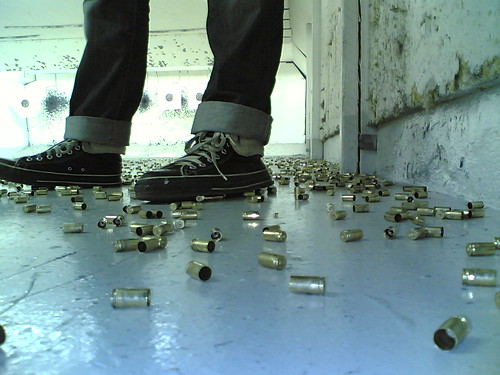Hi,
Just came back from taking some time off blogging. I really really missed this blog and am glad to be back.

A Lot Has Happened: Quick Recap
Over the weekend, for those who don’t know, there was a peace agreement signed in Kenya. Apparently there was dancing and celebration all throughout Kenya and I send nothing but love down there. This is a bright light, that is hopefully THE END of a very dark period.
For much more insightful commentary on the situation please visit Global Voices Online and What an African Woman Thinks.
Secondly, my readership had a dramatic increase yet again over the weekend. To all who promoted my blog, a huge word of thanks.To all my new readers, feel free to visit the Welcome desk and enjoy your stay.
Finally, my last post on the different perceptions of promiscuity amongst the sexes kicked up quite a little storm. To be honest, I didn’t think the post would have the effect it has. I guess the only thing I would implore everyone to do would be to examine what their feelings are around the topic and WHY they feel the way they do. Because clearly this is a sensitive point for a lot of us and I would actually be curious as to why. So, if you have something to say about the promiscuous lifestyle in men and women please check out my last post and join the discussion.

The Power of Language:Part two
Just a couple of hours after I wrote the article on the power of language, I felt a bit of a ‘stirring’ in my soul. I realized I had a little bit more to say about the subject and so allow me to add a little bit to the discussion.
Creating a ‘New Africa’
Right now, among Kenyan circles especially, there is a lot of talk about crafting a vision for the country. About redesigning our country from the ground up. I know this discussion is probably taking place in Chad, maybe even in Sudan, Ethiopia and Eritrea amongst others. I think in crafting this vision, we would be short-changed if we didn’t at least discuss language.
Colonization of Language
When the barbarians of the old colonial system decided it was time to take over Africa, a lot of them did it under the premise that they were ‘civilizing the savages’.
Civilizing: Can also be described as edifying, enlightening, humanizing, refining.
Savages: Lacking polish or manners or Vicious or merciless
Never mind the fact that they went about “civilizing” us in a savage way, but one of the things that all colonies insisted on was teaching us their language. It’s one of those things, that to be honest, I missed for a very long time. All colonial powers insisted on teaching us their language. Why?

Communicate for the Sake of Trade
Of course the initial reason is probably so that it would be easier for the powers to strip Africa of her resources and trade and exploit. No point trading day in and day out with someone who speaks Kiswahili when you can easily just teach him English. However I think it was a little more than that. They also did it so that:
1) We could see the world the way they see it: When you fully understand the language of a culture, you understand a lot about the culture. A lot of the metaphors in African language involve animals (Fahari wawili wakipigana, nyasi ndio itaumia – I know I said that wrong, my bad, but it basically means “When two cows fight, the grass gets hurt!”) and plants and the Earth because African societies and economies were based around agriculture. By comparison, watch your typical American movie and you realize that a lot of the language is the language of war (“Knock ’em dead”, “You’re killing me”, “It’s like they’ve got a gun to my head”, “You’re the bomb!”). Never forget, the States has been at war with one nation after the other for almost every decade of it’s existence, not to mention the gun culture amongst other things that have probably combined to keep war and war ideas and metaphors perennially embedded in the American psyche.

When recreating our society, we must rewrite the text books and the language and grammar books to include the type of language, metaphor and proverb of the society that we want to create. If we want an egalitarian society, then let’s not make it difficult for ourselves by including metaphors such as ” Nobody remembers who won silver” in our national discussion, dialogue, debate and education.
Instead we can include metaphors such as, “All boats rising together.” “An injustice anywhere is a threat to justice everywhere.” “How can there be peace, Unless we all can eat?” etc etc. Again, to a lot of people this may sound like me being pedantic, however, never forget without a language we have no way of describing anything or putting words to what we want to create. Let’s describe the type of tomorrow we want to see and use this language to create a magnificent future.
Negative vs Positive Language
In addition to that I thought I would share with people some ways to use language to bring the positive out of a situation. This is something that I am pretty competent at and so I thought I would expand a bit on what I had spoken about in the first part of the article.
I Don’t Do This Anymore vs This is What I Will Do Instead

I don’t drink/smoke/take drugs: Whereas these are fine, anyone whose into goal setting will tell you that you never describe anything in the negative. Or at least only in the negative. This is because if we only have a negative state ( i.e. I don’t drink, I don’t smoke, I don’t overeat) that leaves a vacuum. Instead we should always speak in terms of the positive future or the positive state we want to create to fill this vacuum. In so doing, we create a compelling future that we feel inspired to move towards.
After all that drinking, smoking, taking drugs was doing something positive for you. It was fulfilling some need or desire that you once had. Instead of saying I don’t drink, a more empowering way to describe the situation might be:
I am now free from the shackles of alcoholism and can now find a more empowering way to fulfill my need for excitement in my life.
or
I am now lucid and in control of my life.
Opportunity and Learning Experience

Again let me reemphasize how important it is to re-frame any problem or challenge that may face you as an opportunity or a learning experience. I will give you a simple example of something that happened to me and show you all the lessons that I learned from it:
A couple of months back, I moved to a new city. Now, the vacancy rate in the city was at about 2%. In addition to that, the tertiary institution that trained me was a hoax and so as I headed up into the city I basically had no qualifications of any sort and the housing situation was beyond terrible for any new tenants.
I have no idea how long I was there but for the entire time I was there I was homeless. In addition to that, for the first month or so, I had absolutely no source of income, and my savings were dwindling every day. From that experience I learned:
a) How to get a job when you have no qualifications or paperwork or address whatsoever (Go to a backpacker’s hostel and apply for the construction, landscaping and/or sales positions. They expect you to have problems with paperwork and so a lot of these places pay you in cash and some of them even pay you on a day to day basis so you can stay afloat)
b) How to get a job in your industry if you have no paperwork (Referees! Referees! Referees! Get people in your industry to be your referrals. In addition to that you could offer to work for your prospective employer for free to show them what you can do and ask them to only hire you if you seem like you can do the job)

c) How to ‘live’ in a city when you are homeless (Work for the first week flat out. Go on ebay or trading post or notice boards or anywhere where you can find cheap cars. Go buy a cheap car but make sure it has heating and air conditioning. Go to your local beddings store and get a blanket. If you need a daily shower, go to the local swimming/recreation centre or to the beach and use their public showers. Spend your free days in malls because of the food, toilet and make sure the mall has a Borders so you can read books for free) etc etc etc
In short, there are very few situations or challenges or obstacles that cannot be the seed of something greater. If one man’s crucifiction was described as ‘salvation and hope’ for billions, then surely you can find the good in your not being able to ‘find a good man(or woman)’. Maybe you’re not good enough and it’s your opportunity to become a better person.

Anyway, just a couple of thoughts. If you have something you want to say, you’ve heard it before, leave a comment or get in touch with me.
B blessd and bless othaz,
Mwangi
A couple of word smiths for you:
If you understand just what Lupe is saying in ‘Dumb it Down’, you are ‘the one’!
 | ||||
 Nameless - Sinzia: Hide Player | Play in Popup | Download
Nameless - Sinzia: Hide Player | Play in Popup | Download | ||||
 Lupe Fiasco - Diamonds (WOW!): Hide Player | Play in Popup | Download
Lupe Fiasco - Diamonds (WOW!): Hide Player | Play in Popup | DownloadTags: African leadership, African psychology, language, leadership psychology
I am just curious, are you in Australia or are you living in the United States? The reason I ask is that in a lot of your posts you refer to the “West” and make a lot of comments about the U.S.
I live in Australia. I just spent a lot of time studying up on the US and watching US media. And for some odd reason I simply don’t find Australian history half as interesting as American history.